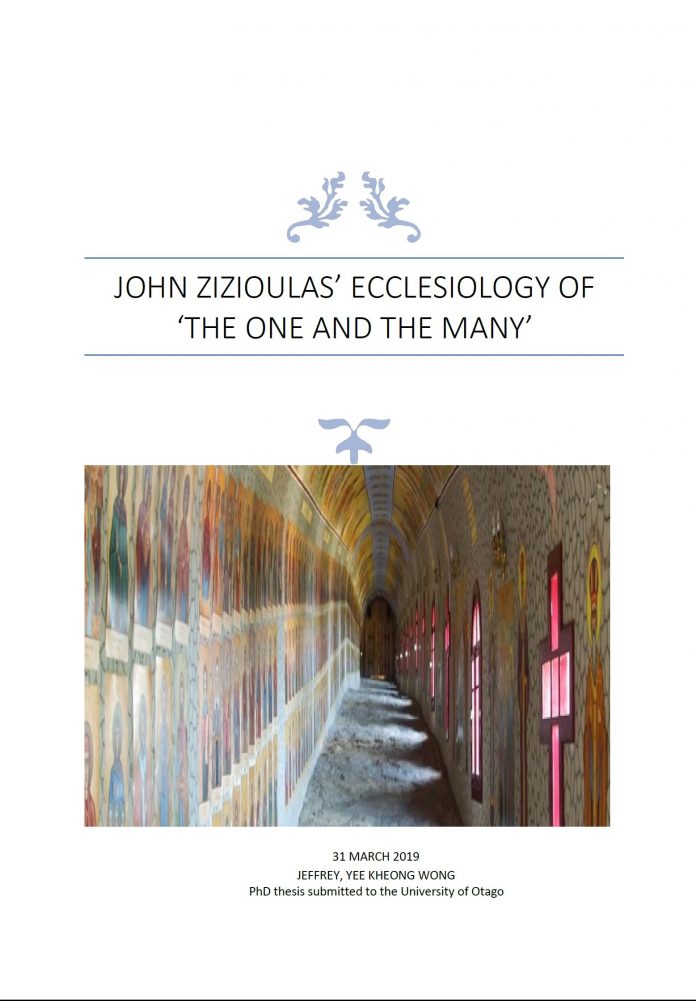This thesis examines John Zizioulas’ ecclesiology of ‘the one and the many’ in the context of eucharistic ecclesiology. By comparing Zizioulas’ ecclesiology with Nicholas Afanasiev’s, I show how Zizioulas articulates an ecclesiology of communion in otherness based on his unique concept of ‘the one and the many.’ In Zizioulas’ structure of the Church, the bishop stands out as the indispensable icon of Christ in the Eucharist. Through him as the ‘one,’ the local church is constituted by the ‘many’ members, the ‘one’ local church remains in communion with the ‘many’ other churches to constitute the one Church, and the ‘one’ (protos) can exercise synodical primacy over the ‘many’ episcopal churches.
These are the primary insights in this dissertation:
1) Zizioulas’ ecclesiology is based on a synthesis of the ideas of the Church Fathers Ignatius, Irenaeus, Hippolytus, the Cappadocian Fathers and Maximus, all of whom Zizioulas cites extensively to argue persuasively that the central act of the Church is the Eucharist which constitutes the Church which is in turn simultaneously constituted as the Body of Christ.
2) Although the Church is historically in the world and deeply involved in the world, she is not of the world because her true being is derived from the eschaton. This is because she is the eschatological community of the Holy Spirit and of Jesus Christ in whom humanity finds its everlasting being and its true image.
3) Although Zizioulas’ ecclesiology has its critics and short-comings, it is an advance beyond Afanasiev’s eucharistic ecclesiology in that it offers us a blueprint for the re-unification of all episcopal churches under one primate through conciliar structures modelled after Zizioulas’ theological concept of ‘the one and the many.’ This may be applied to the local church, the regional synods comprising of bishops and a universal synod comprising of all the patriarchs, provided that the concept of communion and autonomy is respected in every local church.

